January-April 2022 Movie Roundup
It's time for another roundup! The best shorts and feature-length films I watched from January to April of this year.
Contents
- Shorts
- Features
- Special Mentions
- Going Forward
Shorts:
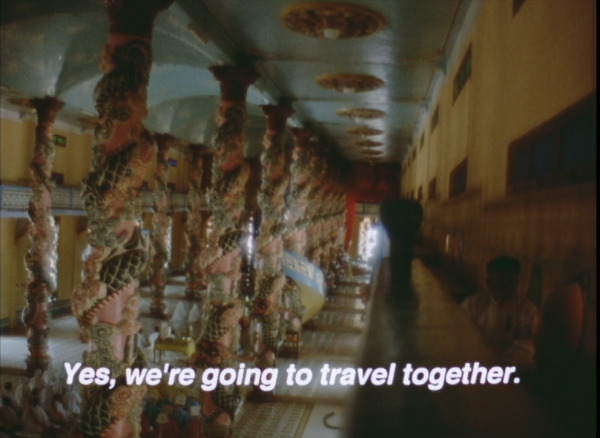
Which Way Is East (1994)
Western media's picture of Vietnam begins and ends with the US invasion, which began in 1955, escalated in 1964, ended in 1975, and is a period of time known in Vietnam as "The American War." Our exclusive lens is the traumatized American veteran, and how he defines Vietnam is what we are supposed to accept. But the people and land of Vietnam (and Cambodia, and Laos, who were attacked by the US as part of the same imperial mission) are not locked in time, and they live with the real legacy of that war, with undetonated landmines, deforestation and other toxic remnants of Agent Orange scarring the landscape, and with their history, culture, and politics now existing in relationship with a war that took millions of Vietnamese lives. Which Way Is East is a quiet movie about life as an American visitor to Vietnam in the 90s, featuring a road trip from Ho Chi Minh city to Hanoi. Drive-by shots of green landscapes whizzing by, director Lynne Sachs and her sister Dana Sachs discussing seasonal fruits and vegetables, and conversations they have with people of diverse personal histories and points-of-view, veterans and Buddhists and communists, people too young to remember the war and people who survived everything. This is a great complement to Luna oi!'s appearance on Guerrilla History, because although she is young and her perspective is more contemporary, her message that the people of Vietnam are proud of their resistance and resilience, are not invested in grudges but in keeping historical memory alive, and just want the space to develop their country in a free and equal way is completely at home with what we hear in Which Way Is East.
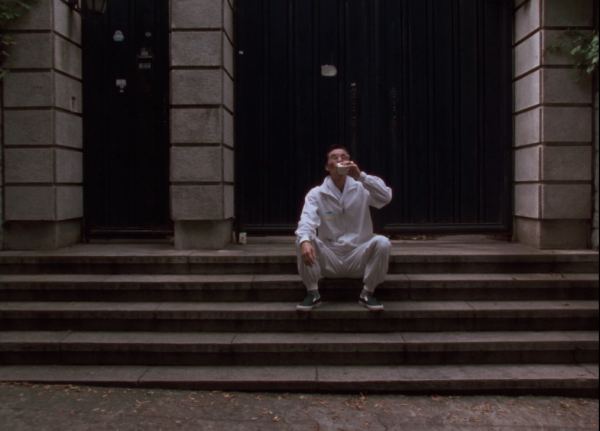
Incoherence (1994) (restoration 2019 Korean Film Archive)
A student film made by Bong Joon Ho (of Parasite, The Host, and Snowpiercer fame), who came out swinging, with a well-developed cinematic eye and a flair for effective social satire.
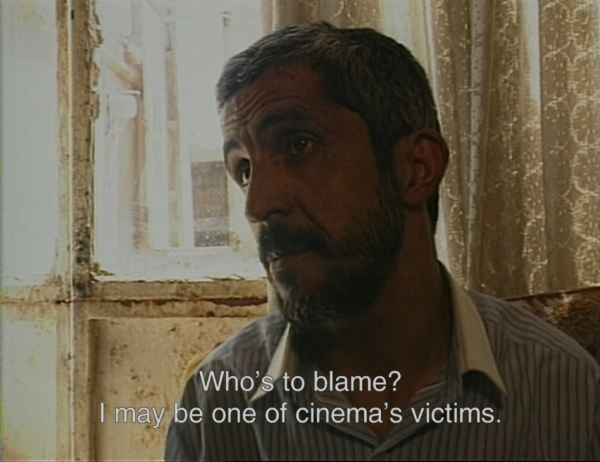
"Close-Up" Long Shot (1995)
Somewhere between a short and a feature, this is a documentary catching up with the lead character and actor of Kiarostami's dramatized documentary Close-Up, Hossain Sabzian. Interviews with Sabzian, and with people who know him from his real life, provide more context to what little we saw in Close-Up, and some sense of the impact that movie had on his life. Most importantly, we get a lot more of the best aspect of Close-Up, which is a chance to hear Sabzian's own ideas. He is a tortured artist, so tortured that he never really got the chance to make any art of his own. How many sensitive, perceptive, creative people are kept down by lifetimes of crushing poverty, and by a means of artistic production which leaves most of them utterly alienated and unheard? It's a gift to get to hear from someone so keenly aware and sensitive to what is going on.
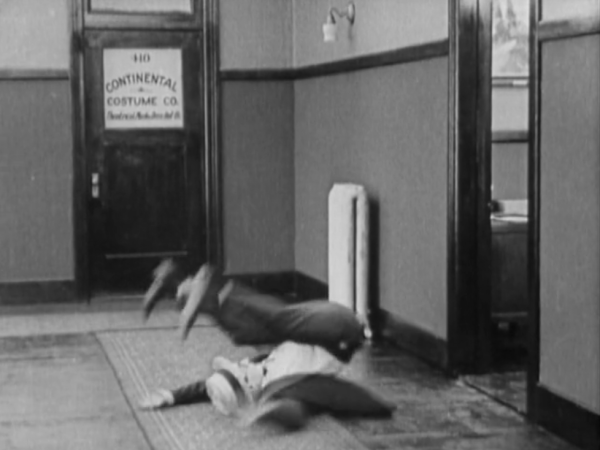
Ask Father (1919) (watch here for free)
Short films and silent films both tend to be tough sells with Sraëka, but, somehow, she's always been down to watch a Harold Lloyd short with me over lunch. It's just fun to watch a scrappy underdog do daring stunts, dupe policemen, and fall down sometimes. And Ask Father is the best one. It's fun, focused, it builds well with a great rhythm, and it makes us laugh.
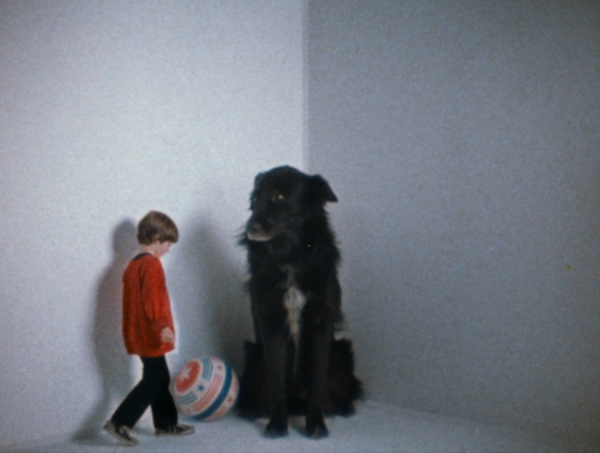
Loose Corner (1986)
Prismatic Ground is a festival of experimental non-fiction short films, and the Criterion Channel (which is where I mostly watch movies these days) is hosting last year's lineup right now. This is the first short on that playlist, and it is a playful, fun series of cinematic optical illusions that I found dazzling. Reckless Eyeballing and my favorite software is being here, below, were both featured by Prismatic Ground as well.
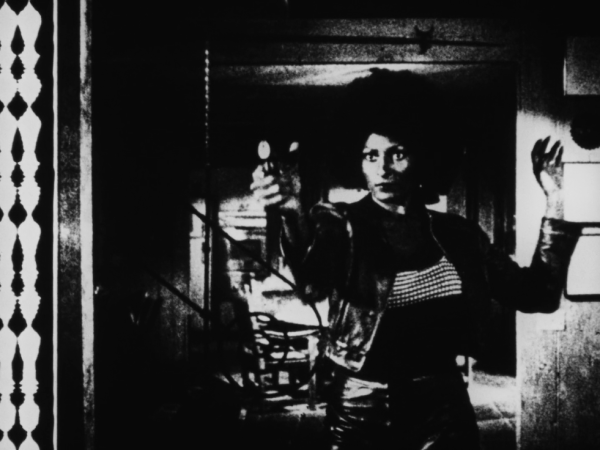
Reckless Eyeballing (2004)
Christopher Harris has created a sort of meditation on the history of Black/white gazes by reworking and remixing samples taken from throughout film history, from The Birth of a Nation to Foxy Brown. I couldn't place all of the references, so at first I worried that most of the meaning was being lost on me. But each phrase and image is repeated in progressive cycles, and the story develops along that spiraliform structure, allowing space for real contemplation of the material.
Here is an interesting 2021 work by Harris, which you can watch for free right now, called Dreams Under Confinement.
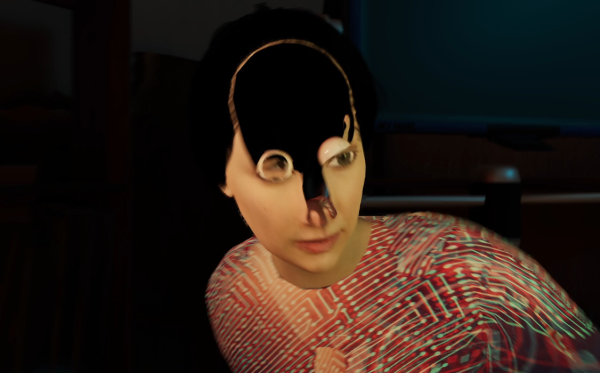
my favorite software is being here (2021)
Meaningful critical engagement with new web culture is difficult, necessary, and rare. Alison Nguyen has found a brilliant point of entry. By focusing on the inner life of a single alienated AI gig-worker, Andra8, this goes far beyond the limits of Her (which, with its POV locked in one man's romantic projections, is just like every other sadsack-suck-falls-in-love movie) and even Teknolust (where Tilda Swinton's Self Replicating Automatons have at least each other for company and live a life of sterile boredom rather than soul-crushing overwork), and manages to draw out the threads of what our cyborg/android-producing mode of production and cultural media actually do to us and what options are present if we want to move forward. Andra8's words were trained on the twitter feeds of "B-list social media influencers", and the writing really captures the paper-thin word-salad style of a certain type of online voice (an update of the meaningless centrist speeches that Mary Harron put in Patrick Bateman's mouth in her very funny American Psycho). I also really appreciate the animation style here, and would love more filmmakers to work with the uncanniness of CG with this level of awareness. It reminds me a bit of Robert Yang's video games, which also play with and distort CG models in order to reveal something about the human image in the age of digital technology.
Features:
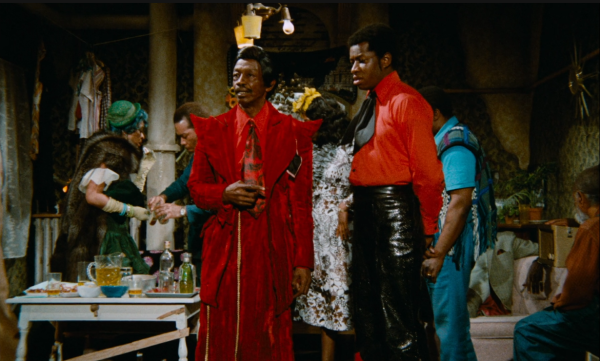
Don't Play Us Cheap (1972)
Melvin van Peebles was a writer, director, composer, novelist, actor, and towering influence on independent cinema. In 1970, he released his first and last studio film, Watermelon Man. In 1971, he put out Sweet Sweetback's Baadasssss Song, an independently-produced megahit with a seriously revolutionary orientation and impact, psychedelic and badass and shocking and stone-faced. And in 1972 he released Don't Play Us Cheap, a heartwarming musical comedy based on his own Tony-nominated Broadway show of the same name, starring the same cast and using the same sets. (The show was first written in French, van Peebles' second language, and based on a French-language novel he wrote in this same time period). I have no idea how he found the time. These three movies are completely distinct from each other, with the only links being van Peebles' creativity and his fidelity to a radical Black consciousness. I need to watch the rest of his work from before and after this period.
Don't Play Us Cheap is about a couple of devils who decide to don disguises and crash a house party in Harlem on a Saturday night, but whose attempts are thwarted by the unbridled resilience of their hosts. The music is great, the performances are great, it's funny and joyous without being cloying or moralistic, the premise is unbeatable and the film delivers on it. Avon Long, a stage legend who plays the elder and more wicked of the devils, is perfect, and his big musical number sticks in the mind for a long time.
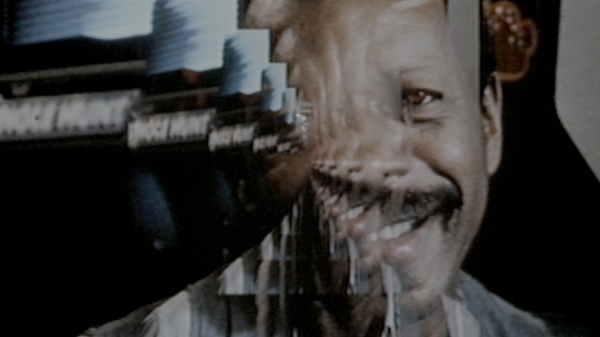
Ornette: Made in America (1985)
Ornette Coleman makes jazz that's too advanced for me. He works deep in the thick of a vast and complex genre, and going into this movie I did not have the tools to understand what he was doing. But this movie gives you what you need to appreciate Coleman's compositions: eye-catching visualizations, Coleman's own perspective on his project, biographical, critical, and social context. The centerpiece is a performance of Skies of America at the Fort Worth Convention Center, played by Coleman, his band, and the Fort Worth Symphony Orchestra. Coleman defines his project in terms of radical democracy between all notes and intervals, and there is a profound contrast between his sound as expressed by a symphony orchestra (with its authoritarian structure), as opposed to the sound that experienced jazz players bring. The symphony orchestra almost sounds contemptuous and ignorant. It's a fascinating thing.
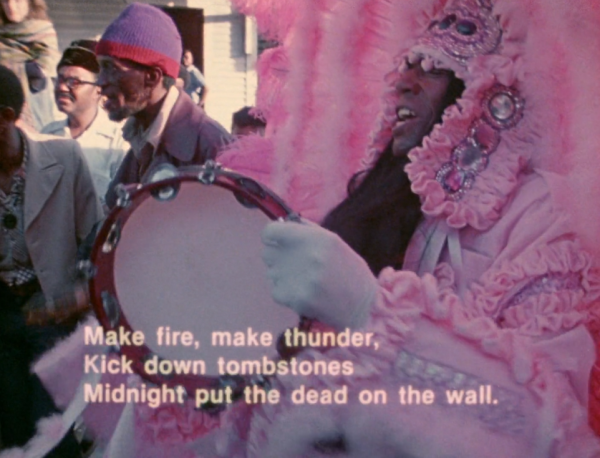
Always for Pleasure (1978)
I've been watching a lot of Les Blank documentaries lately. The Blues Accordin’ to Lightnin’ Hopkins, Spend It All, A Well Spent Life, Dry Wood, Hot Pepper, Garlic Is as Good as Ten Mothers, Sprout Wings and Fly, In Heaven There Is No Beer?, and this. They all blend together a little bit. Un-narrated trips into US-based folk subcultures via food, music, and partying. They're intoxicating, especially if you're getting pretty lonely for big parties. Always for Pleasure is a trip to late-70s New Orleans, via a number of big parades (a funeral parade, a St. Patrick's Day parade, Mardi Gras of course...), and as is the case in all of his films, the people are complex, strong, and live their lives fully. In several of his films, this included, there will be a point where his slogan appears on-screen, declaring that "When you're dead, you're gone. Long live the living!" Blank was a beer-drinking, meat-eating white hippie, and his movies all live in that space.
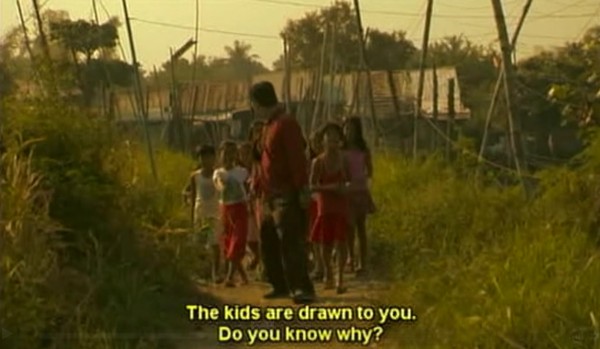
Cavite (2005)
This movie has technical limitations. The equipment is inexpensive, it was filmed guerrilla-style, the team is small. Co-directors Neill dela Llana and Ian Gamazon wrote, starred, edited, filmed, sound designed, and did the special effects themselves. The writing, directing, sound design, filming and editing are all incredible. The acting burden falls almost solely on co-director Ian Gamazon, and his performance is imperfect but with many strong points. The movie is great, and shows that a tiny crew can make a fantastic feature film. (Although I can only imagine what Neill dela Llana and Ian Gamazon must have gone through to make it.) As a crime thriller, Cavite is tense and intriguing. As a political statement it shows conflict and harsh truths without offering patronizing solutions. And as a picture of what US imperialism has done to the Philippines? It is haunting. I think about Cavite all the time.
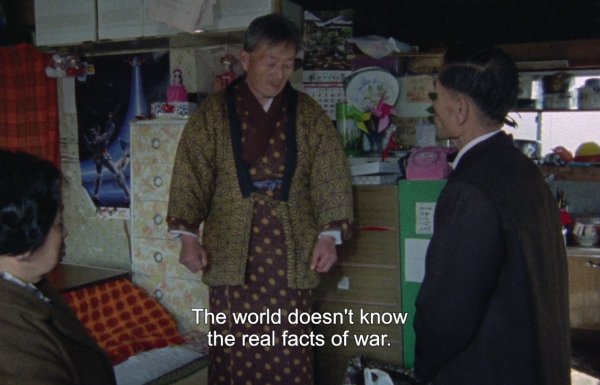
The Emperor's Naked Army Marches On (1987)
Kenzo Okuzaki's passionate struggle for truth and consequences after the hell he lived through as a soldier for the Japanese imperial army in New Guinea. His rage is directed primarily at Emperor Hirohito, upon whom he made an attempted attack in 1969, hoping to use the ensuing court appearance as a platform to promote an anti-militarism and anti-monarchism message. He has a remarkable personality, thoughtful and respectful but completely honest and never wavering from his goals. In this documentary, we see Okuzaki doing more grassroots work, connecting with other survivors with the goal of bringing the truth of war to light. Director Kazuo Hara takes us to shocking places, while never showing anything more violent than a heated argument coming to blows. Although we are told of some drastic actions he took before and after shooting the film, Okuzaki's dedication to his cause comes through most while he tries to convince another survivor to speak up:
"You know that re-armament of the US Army is under way. If everyone had experienced the same thing, I wouldn't have come to you. I wouldn't be interested in stories everyone knows. But you had a rare experience no one else can tell. It's precious. You're the only survivor and thousands died. You're representing them to express their suffering. You were chosen out of thousands who died, and survived to tell the truth to the world. Your experience is too precious to keep silent."
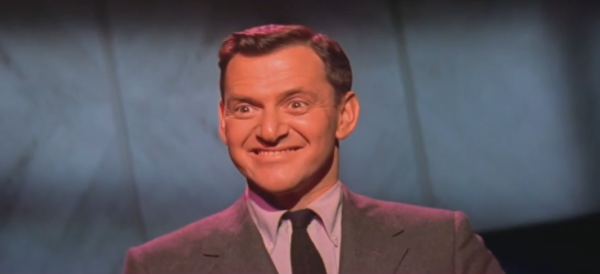
Will Success Spoil Rock Hunter? (1957)
A hilarious satire of advertising, celebrity culture, television, and capitalistic success. Jayne Mansfield is completely unlike how I'd expected her to be, performing her comedic persona with laser precision. Her vocal acrobatics beg to be imitated (thought what skill would be required to properly replicate them...). And she's not the only one here whose voice I was left trying to mimic back as I watched. Everyone acts their ass off in this thing. Beyond the fact that it's all very funny and charming, it's a relief to see something made in the 50's that was already critical of all of the cliche hallmarks of that era's media. It's funnier than most modern attempts to make the same critiques.
Special Mentions:
Jason and Shirley (2015)
Not quite as cutting as Chocolate Babies (also written-directed by Stephen Winters), but a brilliant commentary on and companion to Shirley Clarke's already complex Portrait of Jason. Everything that ran under-the-surface of Clarke's film is drawn out and made visible: psychedelia, Clarke's own voice, the exploitative tension between director and subject.
Faya Dayi (2021)
Gorgeous photography, filming people with a more respectful eye than often comes with documentaries-- especially when the documentary's subjects are African, use drugs, or in this case, both. Jessica Beshir focuses on the economics as well as the spiritual-subjective dimensions of khat, and her film feels one with her subjects instead of objectifying them.
The Annihilation of Fish (1999)
There are not enough romances about lonely old people retired to poverty, facing late-life crises of meaning, and with more problems than they can handle alone. Our lead characters are imperfect, and the love they find does not iron out all their problems. That's the way it is. It's totally beautiful.
Trances (1981)
This was my introduction to Nass El Ghiwane, and their music is great. A down-to-earth music scene, integrated with the community and where concerts are meaningful communal experiences rather than merely showcases of the artist.
Shake! Otis at Monterey (1968)
The first time I watched this nineteen-minute set, I watched it four more times right after. The commentaries on Criterion are pretty interesting, and an excuse to hear the set a couple more times.
Original Cast Album: Company (1970)
Behind-the-scenes look at the recording session for the OCA of Company. Fortuitous climax featuring Elaine Stritch fighting through "The Ladies Who Lunch", and two interesting commentary tracks (one of Sondheim alone, and one featuring Stritch, whose commentary is enlightening).
Please Vote for Me (2007)
Weijun Chen's documentary focuses on an election in a third grade classroom for the position of hall monitor. There are three candidates, all with strong personalities, but all clearly influenced by the adults in their lives as well as social forces that they're only beginning to comprehend. A revealing look at the flaws of a democratic process reduced to a popularity contest-- and since the election featured here is more of an instructive exercise than real politics, it's a pretty brilliant way into the conversation.
Stormy Weather (1943)
Watched a few classic-era movie musicals recently, and this is the best of the batch. Lena Horne is the most elegant and engaging lead, the big flashy numbers here have the most entertainment value, the dancers are astonishing, and it's got the best songs, too. There is a comedy sketch in this that is... a historical relic we have to confront, and it was probably controversial at the time as well (but not so controversial that the movie treats it like it would be). Important to recognize how massively influential blackface has been on comedy and culture, and how Black artists have been made to contend with it, to position themselves in relationship to it.
Bright Future (2002)
I was certain that this was a brilliant early-career film by an exciting young director, exploring the experiences of his own alienated youth coming-of-age in an era of economic downturn. Then I learned that this was made by Kiyoshi Kurosawa, the same man who directed Sweet Home in 1989 (which exceeded my expectations and earned a "spicy" rating last year lol), and I knew I needed to seek out more of his movies right away.
Creepy (2016)
The next Kiyoshi Kurosawa (no relation to Akira Kurosawa btw) I watched was Cure (1997), which was a great take on the detective drama, but which didn't totally connect for me. And then this, probably the best danger-lurks-in-your-suburban-neighbourhood movie I've seen. Taken literally, the story in Creepy is bizarre-- but taken as a dramatic exploration of violence, trauma, and the mechanisms which perpetuate it (self-justifications, risk-aversion generating complacency) there is a lot to latch onto.
Going Forward...
I was thinking about doing a roundup like this every four months, the occasional stand-alone post, and then a focused top-ten post on a yearly basis.
But I am ambivalent about these roundup posts. I wonder if there would be some value to posting shorter reviews directly to twitter, soon after watching, rather than making a large retrospective every few months. I personally prefer to write this way, but I suspect people might be a little more interested in reading self-contained (and twitter-hosted) reviews. I'm still on the fence. But posting on twitter makes me feel sick, so I'm probably going to stick to this for now.